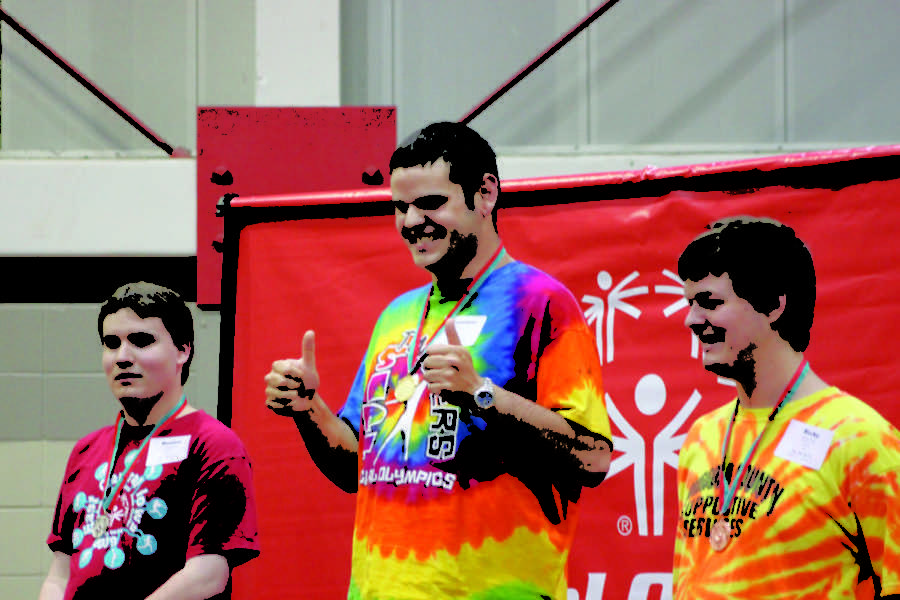Spread the word to end the ‘r-word’
Photo: Lyn Bryant/Iowa State Daily
Medalists Ruston Scott, Jonathan Johnson and Ricky Grace take the podium after competing in the 100-meter dash. Scott won gold, Johnson won silver and Grace won bronze. Photo: Lyn Bryant/Iowa State Daily
March 6, 2013
The r-word is, for some people, a very common word to use casually, without realizing the possible effect of the eight-lettered word “retarded.”
Spread the Word to End the Word is, “an online kind of a movement; people can pledge their support [to stop the usage of the r-word],” said Nathan Smith, junior in environmental science.
Smith said that the awareness day of Spread the Word to End the Word is celebrated everywhere.
The awareness day, March 6, will be sponsored by a website called R-Word, aiming to “keep the conversation going” and for individuals to identify that the use of the r-word, both intentionally or unintentionally, will hurt not only mentally disabled individuals, but also their family members, Smith said.
Through pledging, an action is not exactly taken, but the individual shows acceptance to intellectually and developmentally mentally disabled individuals; it is a way of supporting the denial of the word’s usage in a daily context, Smith said.
Smith explained that the ways to be involved and actions to be taken to further support and form more awareness in other people will be shown after an individual pledges on the website.
“I’m not officially affiliated with them; I signed the pledge,” Smith said. “The reason it’s important to me is I’ve worked with people who have intellectual and developmental disabilities, and I’ve seen how unintentional uses of the r-word can still be hurtful to them even though the people saying it don’t necessarily know.”
Chris Ward, graduate student in political science, Kira Swanson, senior in management, and Alex Morgan, sophomore in pre-business, said they would pledge to R-Word.org to help support Spread the Word to End the Word.
“I guess the biggest thing for me is, people aren’t intentionally saying it and they’re not meaning to hurt other people when they do it, but there’s a lot of people who hear the r-word used who might have a family member with some sort of disability,” Smith said. “They’ll sit there and sometimes they won’t necessarily call them out about it or they won’t mention it to them, but it’s still hurting them. Just because they stay silent doesn’t mean they aren’t being hurt. I’ve seen how people are offended by it and don’t say anything.”
He said mentally disabled individuals are incredible people despite their disabilities; “they are as capable as we are.”
Using the word to describe clumsiness or nonsense, whereas the word initially defined the condition of the disabled, hurts the person who has such disabilities, Smith said.
“The first thought that kind of comes to mind, I think of the disability, but also in general people using it the wrong way,” Ward said. “I’m not saying that the r-word is the disability; I’m just saying how people would describe it.”
For Ward, the r-word is a personally sensitive topic and he does not approve of how it is being used so casually.
“It does hurt them whether they can emotionally show it or not, or whether they choose to emotionally show it,” Swanson said.
Morgan feels that using the r-word to describe something unpleasant is unacceptable and is not a term to be used casually. Morgan believes the term should not be used at all because it portrays discrimination.
Smith said that it is a universal effort to overcome the usage of the r-word, and the degree of involvement is up to the individual after they pledge.
To stop the usage of the r-word in a casual context is somewhat hard, but not impossible, Ward said.







